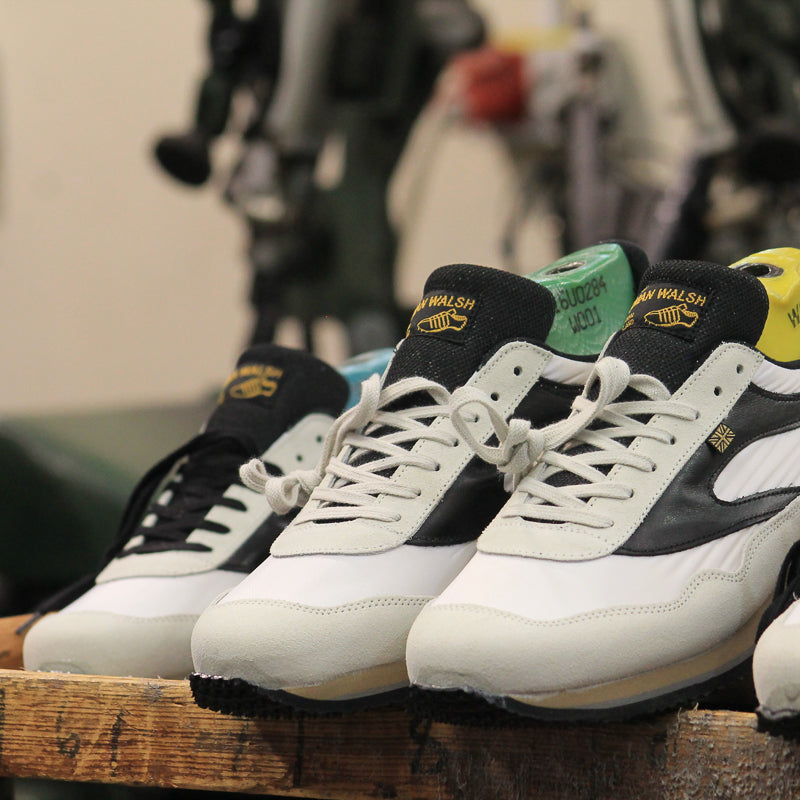A History of Walsh Sneakers
Posted on February 13 2023

A short history of our classic Walsh sneakers. Designed and made in the UK since 1961.

Norman Walsh was born on July 20, 1931 in Daubhill, Bolton, the youngest of a family of three brothers and step-brother.
He left school in 1945 at the then customary age of 14, and followed his father into the footwear industry, with an apprenticeship at a local factory, J.W. Foster & Sons.
Walsh excelled at his work, and in 1948 was selected to make the 'Fosters De Luxe' track spikes, to be worn by the Great British Summer Olympic team.
In 1954 he was chosen to make the shoes Roger Bannister wore for his successful attempt beating the four minute mile record.

Soon after, he made the soccer boots worn by Nat Lofthouse for the 1958 FA Cup Final for Bolton Wanderers FC against Manchester United FC, where he scored both winning goals.
In 1961 Norman decided the time was right to start his own company.

Norman Walsh Footwear is nestled between the Peak and Pennine upland districts, an area famous for its ancient mountain trails and beautiful rugged terrain, so it was only fitting that in the late 1960s Norman created the first ever mountain running shoe, the Pennine Adder. The Adder was worn by many local scramblers and runners throughout the mountainous regions of Northern England including British fell-running star athlete, Pete Bland.
In 1970 Norman and Pete teamed up to create the first ever fell-running-specific shoe, the Walsh PB.
In 1981, mountaineer Sir Chris Bonington and his team wore Walsh PBs in the primary stages leading to the first ever successful ascent of Mount Kongur.
Sir Bonington wore his PBs again four years later for his successful expedition of the southwestern face of Mount Everest.

Throughout the 1970s and 80s there were more players competing in rugby games held at Wembley wearing Walsh boots than all other brands combined, and 9 out of 10 Rugby League top goal kickers wore Walsh boots.
Walsh also found success on the cricket field. English test cricket captain Tony Greig and many of his teammates and competitors from the Australian and West Indies teams wore Walsh cricket boots.
At around the same time, Walsh released specialist marathon shoes such as the Ensign, Whirlwind, Tornado and Champion. He also created models such as the XJ6 Moscow, LA'84 and Seoul '88 for the Olympic Games.

Today Walsh continues to rise to the challenges of performance. British explorer Jamie Bunchuck chose the PB trainer for the first ever foot-crossing of the fullest longitudinal extent of the Kazakhstan's "Betpack-dala" desert in 2014, where he covered over 190 miles, completing over 7 back-to-back marathons in 8 days.

It has now been over sixty years since the founding of Norman Walsh footwear, the last British owned, UK based manufacturer of traditional footwear, and they are still as comfortable and dependable as ever.


